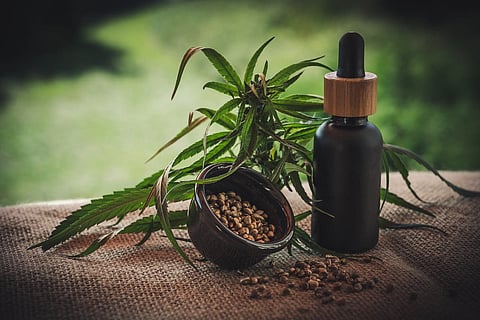

The Social Justice and Empowerment Ministry has recommended decriminalising possession of small quantities of drugs for personal consumption in its review of the Narcotic Drugs and Psychotropic Substances (NDPS) Act submitted to the Revenue Department. Currently, there is no provision for relief or exemption under the NDPS Act and it only gives those living with substance addiction immunity from prosecution and imprisonment if they volunteer for rehabilitation.
In its recommendations shared with the Department of Revenue last week, the ministry suggested decriminalising possession of small quantities of drugs for personal consumption, officials said. The ministry suggested that the compulsory treatment in government centres must be given to those caught with small quantities for personal consumption instead of a jail term, an official said. As per the law, in relation to narcotic drugs and psychotropic substances, a ‘small quantity’ means any quantity lesser than the quantity specified by the Union government. As per the notification, for example, upto 100 gms of cannabis and 1000 g of ganja will count as a ‘small quantity’. The Union government has specified the definitions of small and commercial quantities of illegal narcotic drugs and psychotropic substances in a gazette notification, and the same can be found here.
Possession of drugs is a criminal offence in India and Section 27 of the NDPS Act prescribes imprisonment of up to a year or a fine of up to Rs 20,000, or both, for consumption of any narcotic drug or psychotropic substance. Actor Shah Rukh Khan's son Aryan Khan has been arrested under this section.
According to Section 27(a), if the narcotic drug or substance consumed by the accused is either cocaine, morphine, diacetylmorphine or any other narcotic drug or any psychotropic substance, will be punishable with rigorous imprisonment for a term which may extend to one year, or with fine which may extend to twenty thousand rupees; or with both. Section 27(b) says that if the consumed drug is other than those specified above, the accused faces imprisonment for a term which may extend to six months, or with fine which may extend to ten thousand rupees, or with both.
Currently, the only relief under Section 27 of the NDPS Act is for people who are living with addiction to substances, and who are defined as 'addicts' under law. An addict is defined under the NDPS Act as a person who has dependence on any narcotic drug or psychotropic substance. Under Section 64A of the NDPS Act, “any addict,” charged with an offence punishable under section 27 or with offences involving small quantity of narcotic drugs or psychotropic substances, who voluntarily seeks to undergo medical treatment for de-addiction and then undergoes such treatment, shall not be liable to prosecution under Section 27.